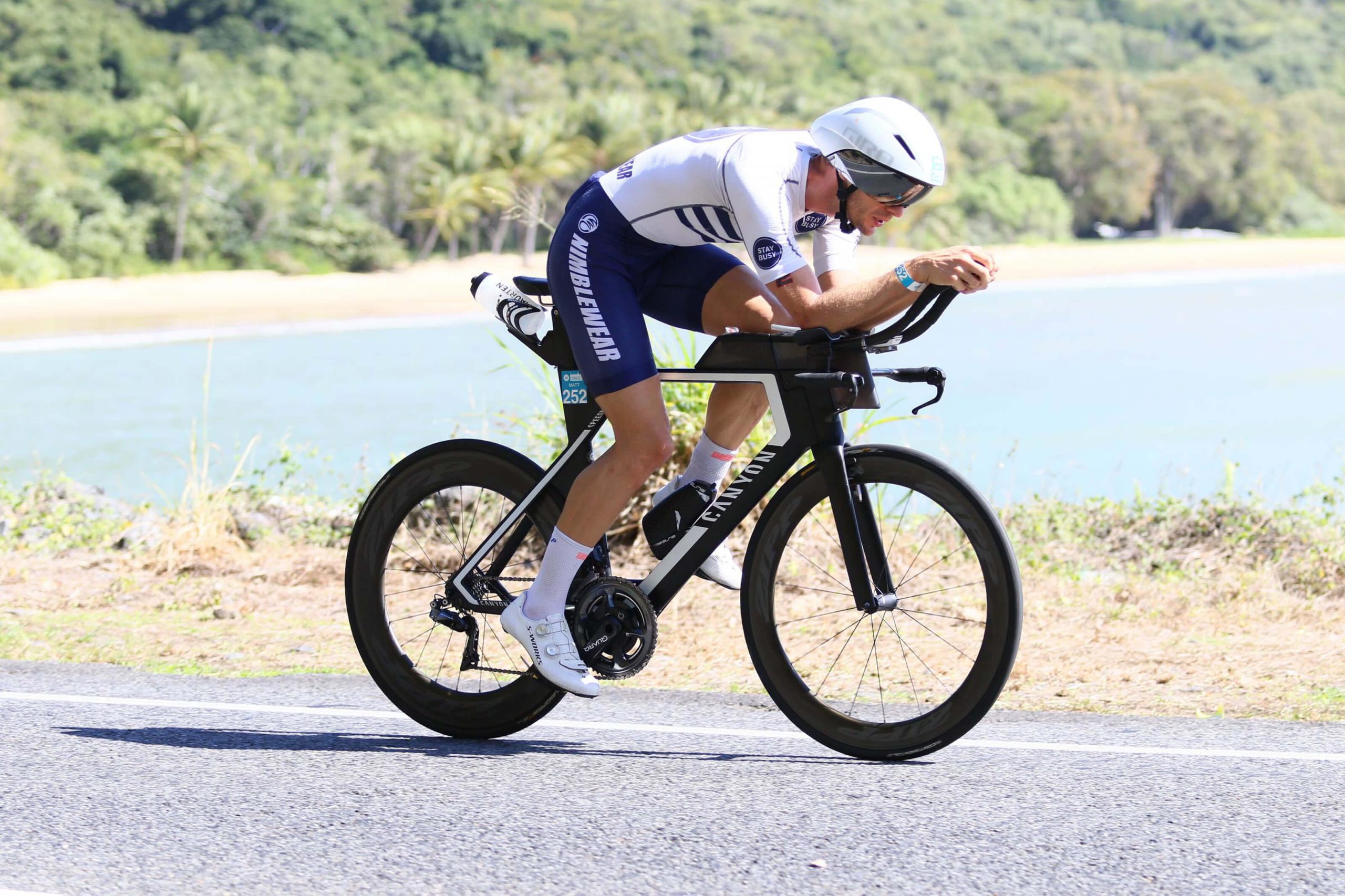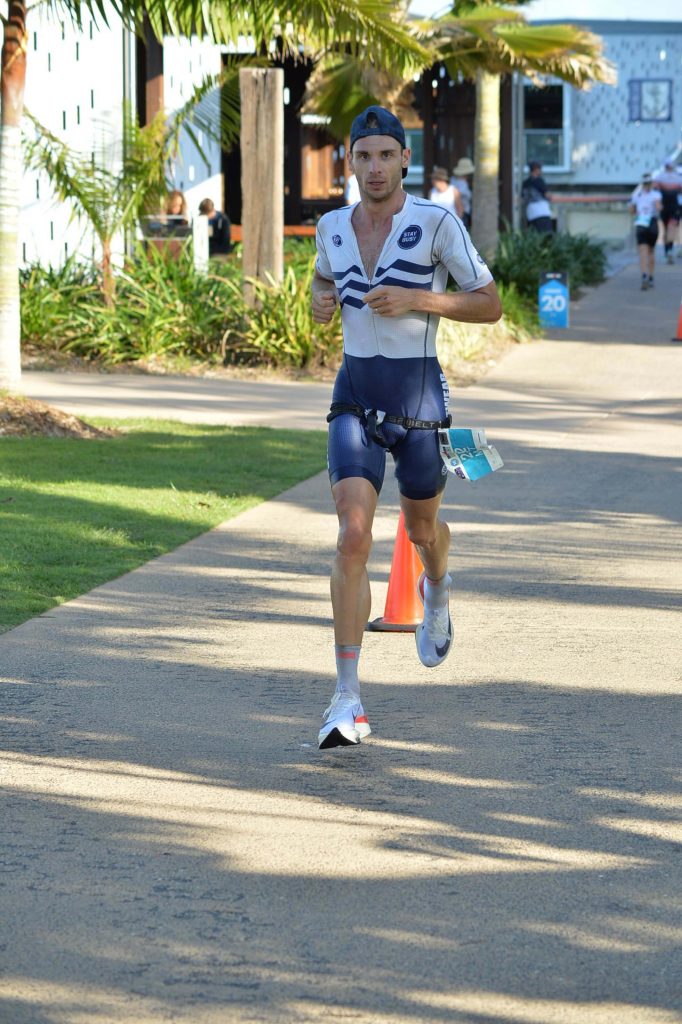It’s rarefied air for an age group triathlete. Under 9 hours in an IRONMAN! As little as ten years ago, if you could swim, bike, and run yourself into sub 9 hours, you would turn pro, these days you might not even win your AG. As for turning pro, I hope you like baked beans! Triathlon in the long course format has progressed to such a level now, that a sub 8 for pro men is normal for the win, and the top AG’er will always go sub 9. The females are similarly as aggressive, and it is very stacked at the pointy end.
Yes, talent and genetics plays a part, as does a high level of competency in one of the 3 sports generally from a young age. But this is dismissive of the work ethic, the organisation, and the pure sacrifice, meaning lessons can be gleaned for any level of endurance athlete. Quite simply faster athletes train harder, which means a big PB can often simply being honest with how comfortable you are being uncomfortable and embracing a TRAIN HARD / RACE EASY approach. At the pointy end, the physiological demands are high meaning that when it goes pear shaped, it really can be humbling. For Matty Jackson, this was his 10th IRONMAN, and his first time under 9 hours. His past racing experiences shaped the knowledge and feedback that he bought into the program and the training. His 8:45 represented a whopping 18 minute PB, which at this level is fairly considerable. This predominantly was due to a 2:50 marathon, the run he knew he could do, but had never managed. Something clicked on the day, so here are some of his thoughts.

Talk a little about your approach to a goal this massive – how do you prepare yourself 16 – 18 weeks out?
I wrote the goal down in detail in November 2019. I like working towards medium to long term goals, especially ones that make me feel uncomfortable. For this specific race, my specific race preparation was 12 weeks. I struggle to work full time and train in a focused way for much longer than that. I try to maintain a good work, life, and training balance even during a training block. Whilst I train hard when I am on a program working towards a race, I am also excellent at not training for prolonged periods. I still have not done any exercise since Cairns, for example.
Lifestyle wise, family-wise etc.?
I am lucky my wife is incredibly supportive. She has done a couple of IRONMAN’s herself so knows what it takes and loves supporting my training and racing. My friends are also supportive, and If I start to take things too seriously, they are the first to let me know. A busy work life that includes regular bouts of travel plus colleagues who do not care about IRONMAN also keeps everything firmly in perspective. A good balance where I can train hard, eat, drink, and socialise is important to me.
Volume and intensity in your lead-in: what were the typical volume in the key weeks?
Volume is not something I keep a close eye on. I would guess 16-18 hours average with a couple of weeks over 24+ hours in there. What I do is have a clear picture of what the key sessions are and absolutely nail these each week. They shape the backbone of your race plan and give you the most confidence. Whilst the longer endurance work underpins everything, when you work full-time you need to find ways to maximise the quality of your training.
What did you feel gave you the best bang for buck, the volume or intensity or combination of both?
I think the most important thing is that the plan is progressive. You cannot separate the two, they are sums of a whole. Understanding the progression overall and not missing or moving sessions around, particularly the easier aerobic supporting sessions. Training easy and aerobic when tired and fatigue is deep, is crucial to improvement. For example, Chris always gave me an easy aerobic recovery swim after the weekly long run. When mileage was getting up around the 32 – 36km mark on the long run, there was obviously a lot of fatigue, but I never skipped that swim. When people talk about mental strength, it is this sort of thing that matters, I think. It’s these sort of training days that stick with you on race day when the going gets tough. And often, I enjoyed it once I got there I think.
What were the key sessions that really gave you confidence? What was the difference you think that allowed you to break that 9 hour barrier?
Two big sessions stood out. Chris gave me 50 x 100 leaving on 1:30 (long course pool) twice in 3 days, which was a big breakthrough for me. The second one was a key prep session about 6 weeks out and then again 3 weeks out: 4 hour TT with 4 x 20 minute 70.3 efforts with a 30km run off holding 3:50 per km – the first time I did it I failed miserably, the second time it came together perfectly, and this gave me a ton of confidence on the day.

How do you manage the deep fatigue that comes in the big training blocks and still keep churning out the bigger mileage?
It is partly the consistency of the training. Because I only really have a hyper focused 10-12 week prep, I don’t have a massive build-up of fatigue. But I come into that 12 weeks in rather good condition physically and mentally ready to nail the key stuff. The general training I do before this 12 weeks lasts for about 6 – 7 weeks, and whilst it isn’t specific per se, I am still quite aware that I need to be ready for the work to come. This phase is about riding with mates, coffee rides, enjoying being outside. I am also making sure I am getting some golf or tennis in as well that I can’t do once the serious training starts. Once it is serious though, I focus purely on the day- to – day and don’t look too far ahead. I tend to just get through it knowing that it won’t last forever, and the pressure will come off soon. I think of it as a kettle with the steam building up just before it’s about to boil. If you take a rest, it’s like letting all the steam out and all your hard work building that pressure is released.
Was it more important for you to nail the focus and intensity of a session in the AM or cooler part of the day or to do it in hotter conditions where you would have to drop intensity, but it would be more applicable to the actual race day?
I wish I had the time to work on these sort of things, but I work full time, so I just train when I can fit it in. Usually, that’s getting the key session done early before work and a second session after work. I did spend a crucial 2 weeks in Noosa for this build doing some solid volume in the more humid conditions (thanks to Covid), which helped massively but this isn’t always an option and not something I have done even for Kona. Generally, with heat adaption, I won’t do a lot of these, but I will spend some time on the trainer in a small room with no fan and ride a reduced power focusing on HR to try and get some regulation going. It has never been a huge part of my focus though even with Kona preparations. Remembering to recover well and getting enough sleep are probably the most important things that I focus on.
What’s your nutrition and hydration strategy (firstly more broadly across all of your Ironman’s) and then about this race in particular? Did you stick your plan on the day or did you deviate from it?
I make my plan as simple as possible. The less I need to mix, pour, calculate, and do while racing, the better. I take a gel every 40 mins and drink a bottle of water/electrolyte per hour. I don’t like having options because I tend to make bad decisions. The only other thing I would say is practice, practice, practice. Keep it simple, but make sure it works across a range of intensities and temperatures. Taking a gel in 17 degrees and 30 degrees is vastly different and you need to prepare your gut for that.
How do you approach the mental side of racing in the days leading into it?
The mental side and motivation changes from race to race. It usually starts much earlier during the prep or even before I sign up for a race. I am very clear of what I want to do before I even start on program. I use a lot of visualisation during key training sessions, focusing on really specific aspects of a race under race conditions and intensities, so they feel familiar to me on race day, which also helps pass the time in training. I also avoid thinking about the finish time or finish line as many things need to go right before you get the honour of running down that red carpet.
I like to know my race plan 6 – 8 weeks out at least to practice it during key sessions. Personally, I also tend to stay off social media and Strava, as this usually just makes me unnecessarily anxious for no good reason.
Mental strength and tenacity on the day?
I like to break things down into small bits and get lots of wins along the way. It’s what keeps me present in the race and helps me make good decisions. If things don’t go as planned, I regroup then usually work out a way to use it as motivation for the rest of the race. Also, enjoying the day is important to me now. There is a lot of strength that comes from actually genuinely enjoying the day and the process. I also have a couple of mantra’s that I work through to help keep me present – one being STAY BUSY. I have this on my race suit. Another one was FREE TIME – what were the little things I could do for free time. Part of this is remembering that sometimes slowing down, can be faster overall in the long run. On the run, I use FORWARD IS FAST – lean forward, keep the hips up, run tall! As the fatigue starts to come in, constantly just checking in on technique not only keeps up the efficiency and therefore economy but it also takes your mind off the pain and misery!
